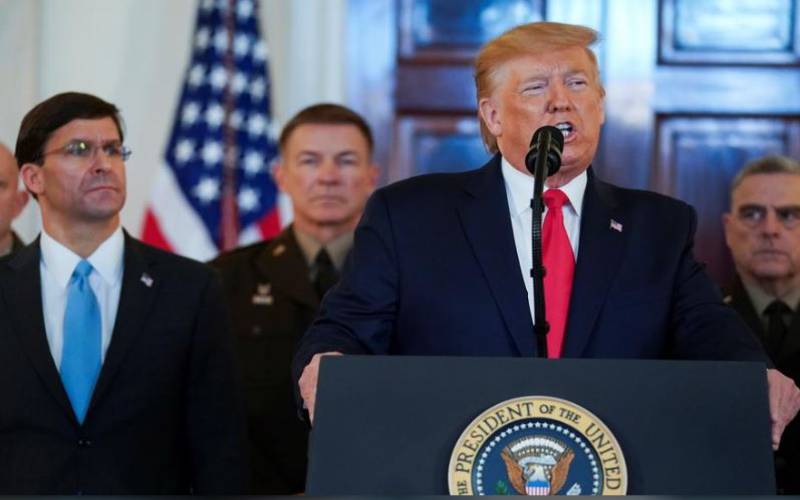
U.S. President Donald Trump delivers a statement about Iran flanked by U.S. Defense Secretary Mark Esper, Army Chief of Staff General James McConville and Chairman of the Joint Chiefs of Staff Army General Mark Milley in the Grand Foyer at the White House in Washington, U.S., January 8, 2020. [REUTERS]
The U.S. House of Representatives voted on Thursday to stop President Donald Trump from further military action against Iran as the Middle East remained tense after the U.S. killing of a top Iranian commander and Iran’s retaliatory missile strikes.